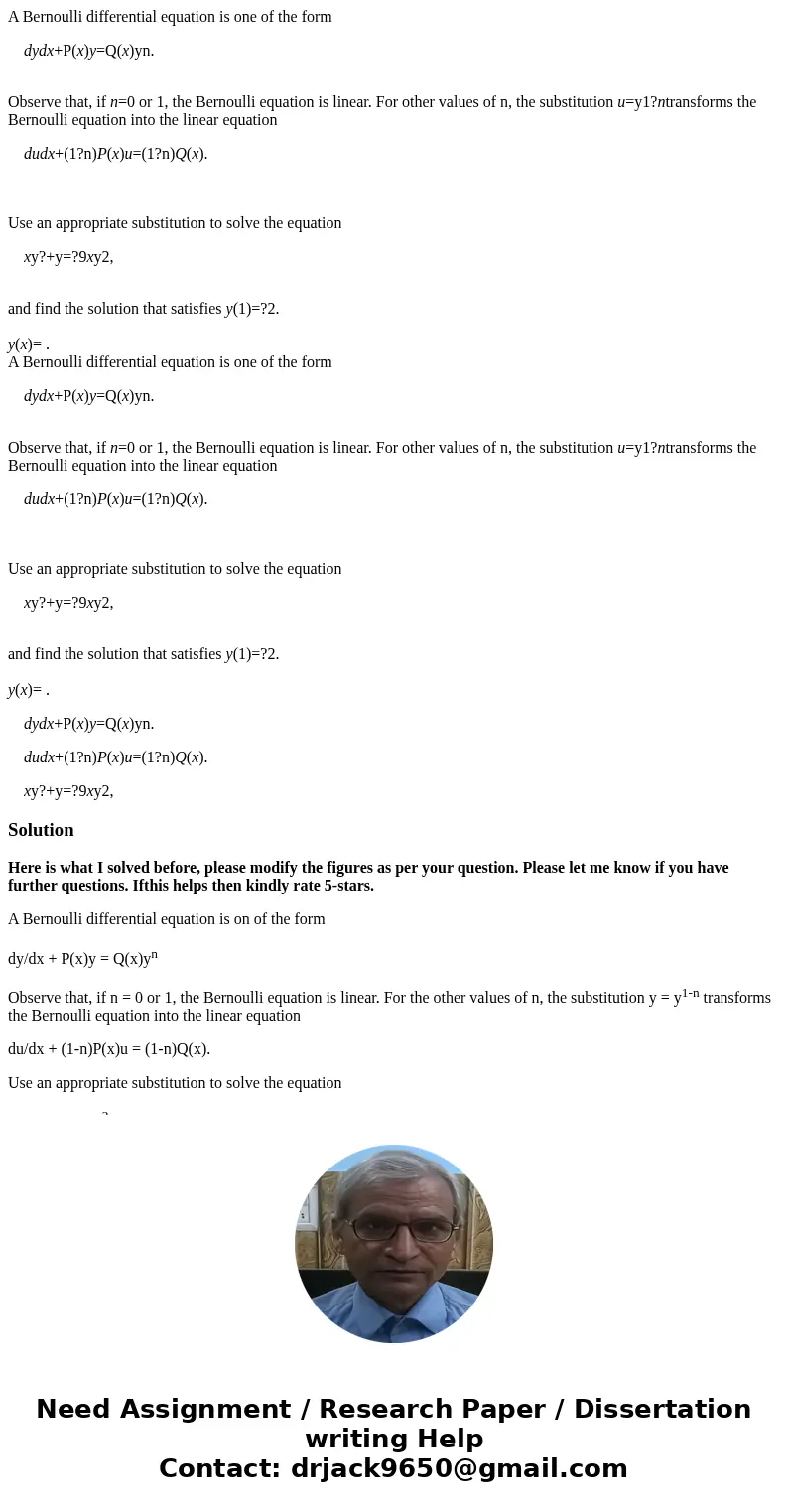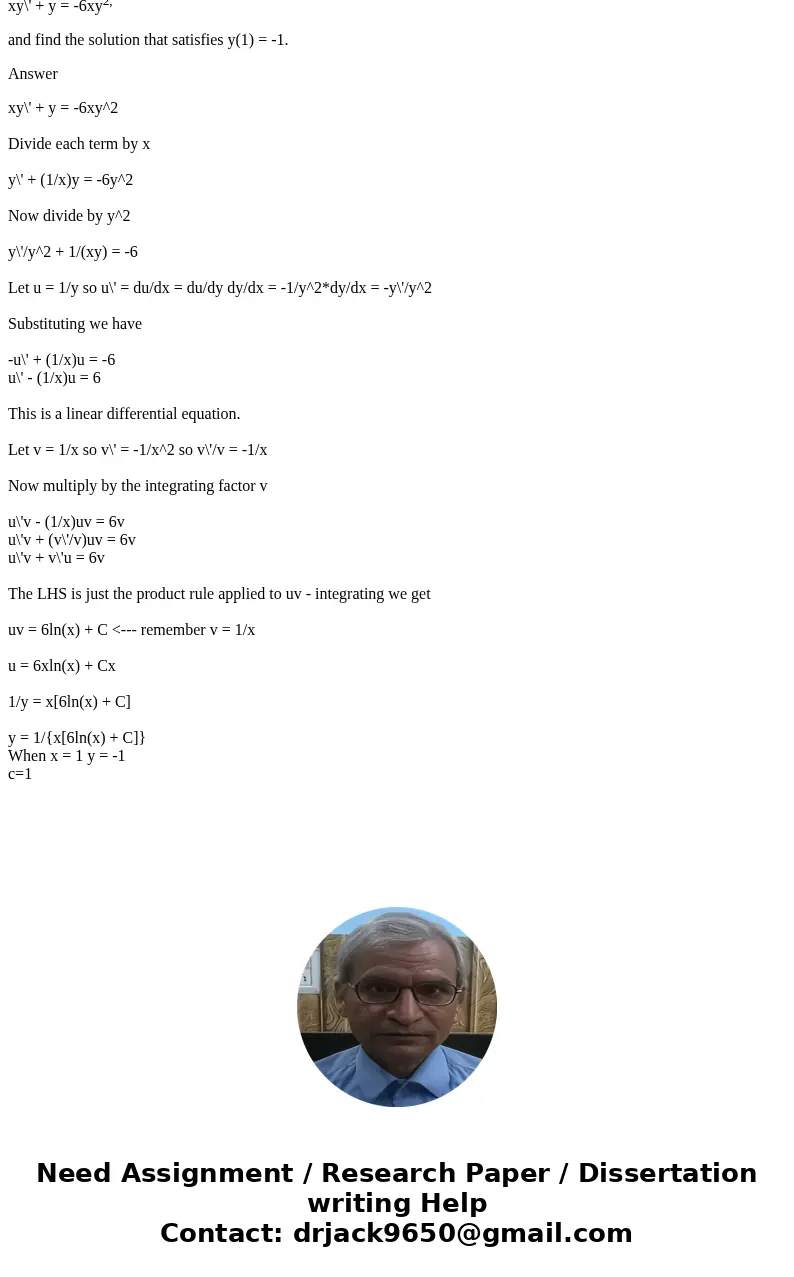A Bernoulli differential equation is one of the form dydxPxy
Observe that, if n=0 or 1, the Bernoulli equation is linear. For other values of n, the substitution u=y1?ntransforms the Bernoulli equation into the linear equation
Use an appropriate substitution to solve the equation
and find the solution that satisfies y(1)=?2.
y(x)= .
Observe that, if n=0 or 1, the Bernoulli equation is linear. For other values of n, the substitution u=y1?ntransforms the Bernoulli equation into the linear equation
Use an appropriate substitution to solve the equation
and find the solution that satisfies y(1)=?2.
y(x)= .
Solution
Here is what I solved before, please modify the figures as per your question. Please let me know if you have further questions. Ifthis helps then kindly rate 5-stars.
A Bernoulli differential equation is on of the form
dy/dx + P(x)y = Q(x)yn
Observe that, if n = 0 or 1, the Bernoulli equation is linear. For the other values of n, the substitution y = y1-n transforms the Bernoulli equation into the linear equation
du/dx + (1-n)P(x)u = (1-n)Q(x).
Use an appropriate substitution to solve the equation
xy\' + y = -6xy2,
and find the solution that satisfies y(1) = -1.
Answer
xy\' + y = -6xy^2
Divide each term by x
y\' + (1/x)y = -6y^2
Now divide by y^2
y\'/y^2 + 1/(xy) = -6
Let u = 1/y so u\' = du/dx = du/dy dy/dx = -1/y^2*dy/dx = -y\'/y^2
Substituting we have
-u\' + (1/x)u = -6
u\' - (1/x)u = 6
This is a linear differential equation.
Let v = 1/x so v\' = -1/x^2 so v\'/v = -1/x
Now multiply by the integrating factor v
u\'v - (1/x)uv = 6v
u\'v + (v\'/v)uv = 6v
u\'v + v\'u = 6v
The LHS is just the product rule applied to uv - integrating we get
uv = 6ln(x) + C <--- remember v = 1/x
u = 6xln(x) + Cx
1/y = x[6ln(x) + C]
y = 1/{x[6ln(x) + C]}
When x = 1 y = -1
c=1


 Homework Sourse
Homework Sourse